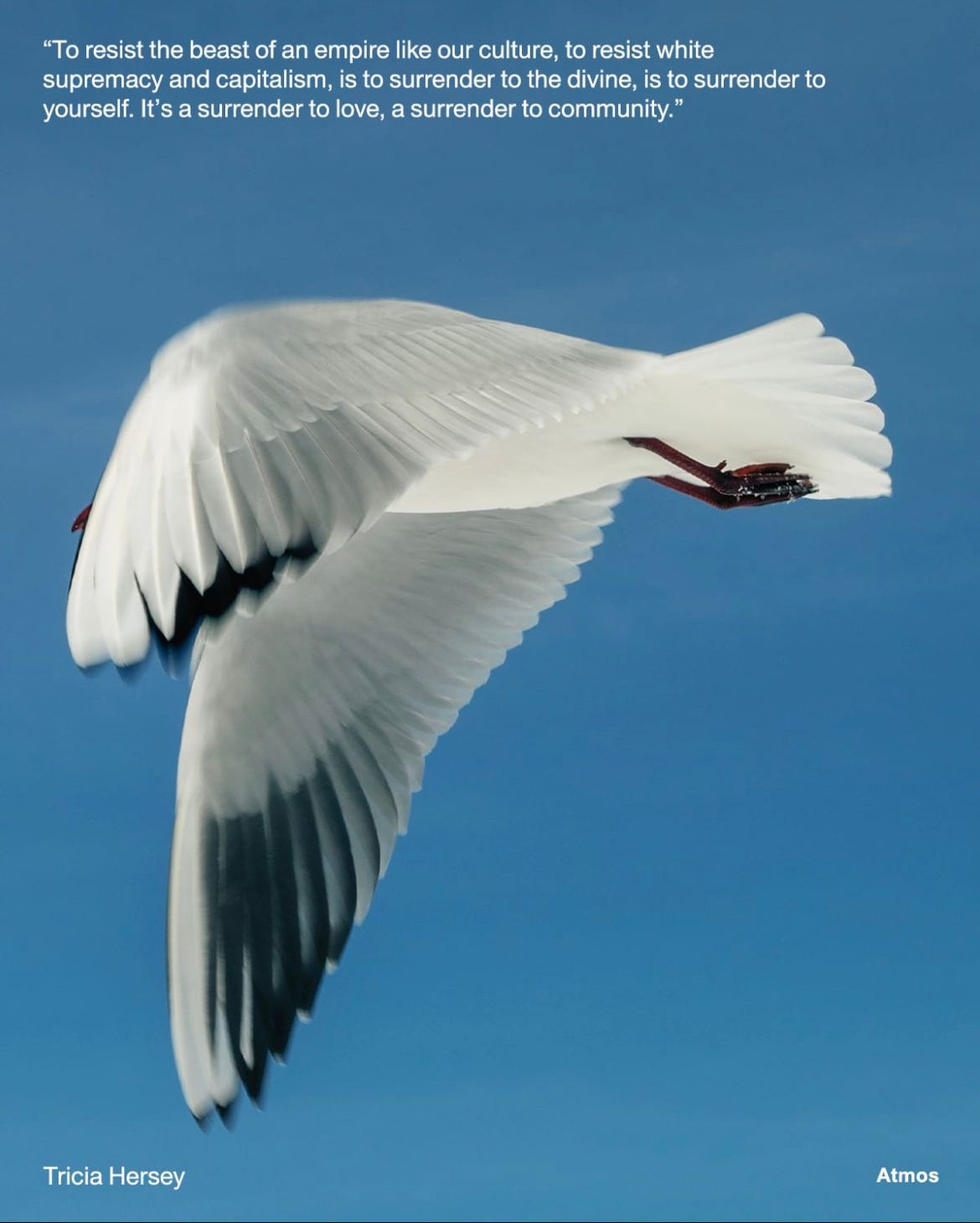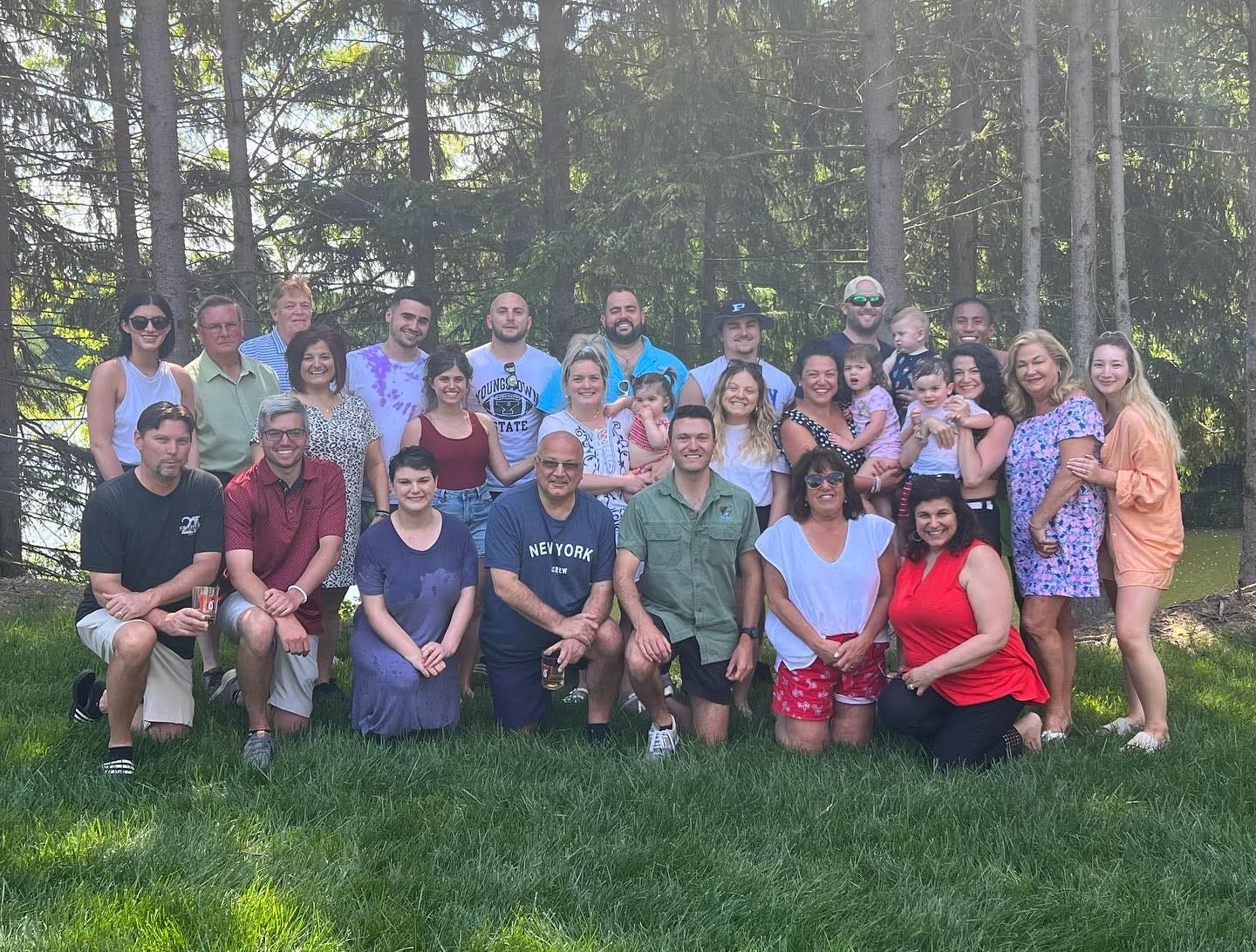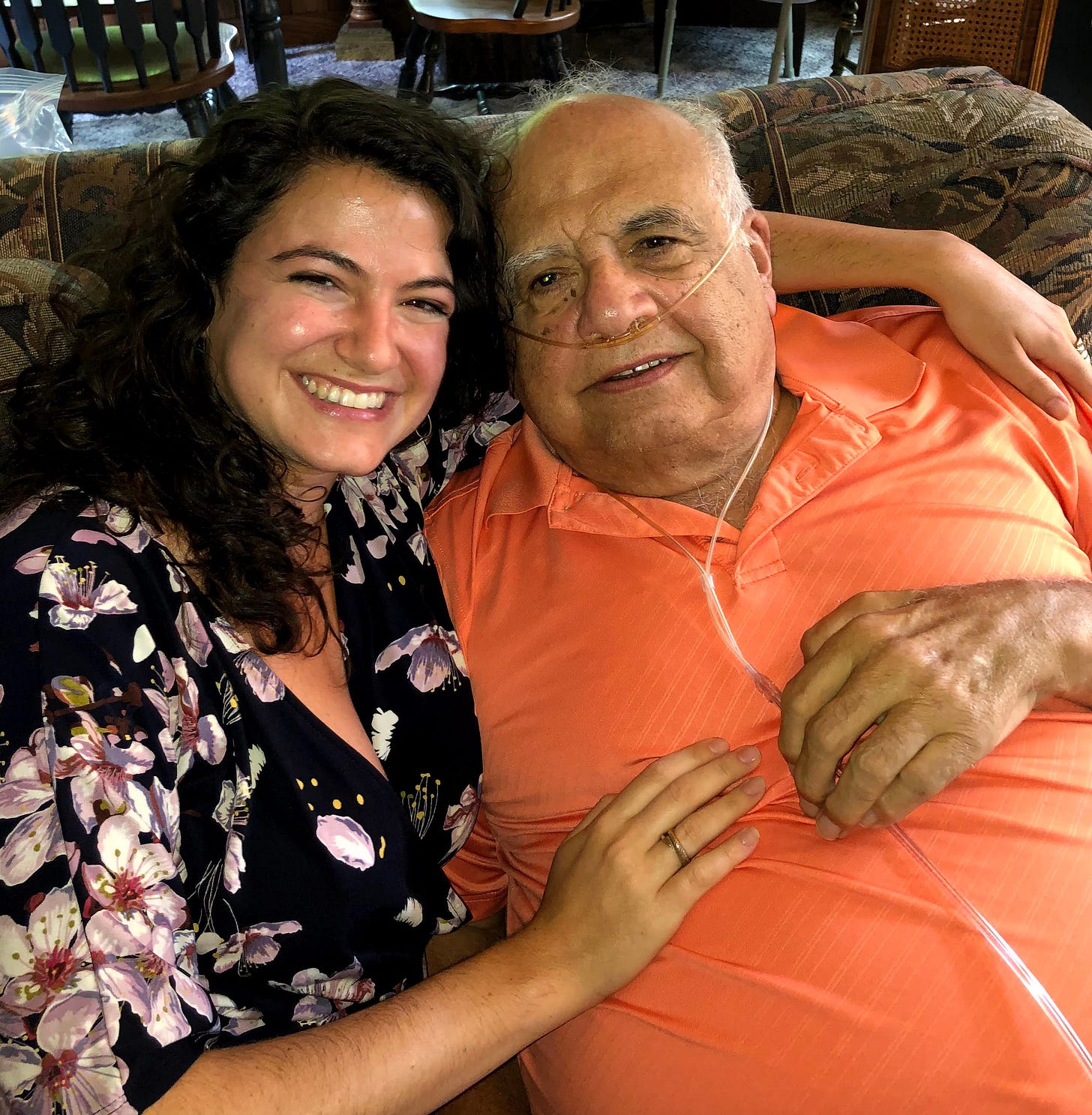Mending the bitterness of loss with the sweetness of spirituality
In honor of Pops on the one-year anniversary of his passing
I had a lot of long, hard days in 2022. May 31 was one of the longest and hardest.
When I walked into his ICU room that morning, the air felt different than it had two days before. Pops looked more distant, dying, a body with almost nothing left, excreting its final fluids. I walked to his bedside, wiped some of the fluids from his chin, looked through his meek eyelids and said with confidence: “I’m going to get you out of this situation today.”
***
After Mimi died in 2010, Pops and I started getting closer. The oldest of his grandkids and only one living away from home at the time, he could sometimes count on me to be awake at 2 am when he was sinking in his grief. In a couple of my memories, I’m lying in bed in my dorm room, probably not sober, and he’s crying heavily in my ear. Missing her. And I am missing her too, but mostly I’m concerned for him, scared of what it must be like to feel so alone after six decades of togetherness.
***
I hadn’t been this close to a dying body before. When Mimi transitioned I was on a plane, trying to make it home from my study abroad trip in Copenhagen before her organs gave up, but delayed due to a volcanic eruption in Iceland. I like to think that my plane was directly above her hospital bed when the last bits of her soul parted ways with her body. Her spirit paused for a moment, entered my weeping body, and took another breath, remnants of her energetic life finding a home in me.
That energy came through me at Pops’ bedside 12 years later. In the moments before his body took its final breaths, Mimi and I sat with him, explained what had happened in the ten preceding days since his daughter gave him CPR in the driveway, prepared him for the decision that was being made to turn off the machines. “You get to choose now,” I said to him. “If you’re ready to go, you can go knowing we’re all here together. Everyone and everything you’ve created will be here to carry on your and Mimi’s legacy.” When the ICU team walked in and the palliative nurse nodded to me, indicating she had gotten the “go-ahead” from my dad and his sisters, I bent down, said goodbye, and kissed him one last time.
“Thanks for making him comfortable in his final moments, Lys,” my brother said tenderly before I exited the room with tears rolling down my cheeks and a gentle smile on my face, feeling the embrace of their spirits.
***
After I graduated from college and the grief of losing Mimi started to change shape, so did the nature of my calls with Pops.
“…I don't want to sound… Well… you know how I feel about political ‘leaders,’” Pops emphasizes with sarcasm in a recording of a call from March 2020. “We’ve been lied to… well, the Pentagon papers will tell you five presidents lied to us about Vietnam…”
In the decade between those late-night calls from my dorm room and the time this conversation was recorded, Pops had lost two more girlfriends and resigned himself to “deep couch city.” From there, memories, political analyses, and philosophical insights overflowed from him.
One day Pops was sharing a story about his childhood on the East Side of Youngstown, Ohio, which was a mostly Black and Italian neighborhood in the 1940s. His story prompted me to tell him about Isabel Wilkerson’s work. Almost immediately, he instructed one of his daughters to download the Caste audiobook to his Kindle. A few weeks later, he called to report back on his learnings.
Early in the book there’s a story of a Black boy in Youngstown who wasn't allowed in the swimming pool with his baseball teammates—all of whom were white. Instead, he was encouraged by the team to float on a raft alone without touching the water while everyone looked on from the pool deck. Why was he even allowed on the team? Pops had asked himself when he heard the story. Then he remembered that the coach of that baseball team was an Italian man who owned the laundromat. It was the only laundromat in the neighborhood that was managed by a Black woman. The baseball player must have been her son. Pops wasn’t on the team because he was busy teaching accordion lessons, but he remembered the people, and I sensed that he could feel the humiliation of that experience, of being an onlooker to his Black peer’s public moment of isolation.
***
“What does spirituality mean to you?” my therapist asked me in June 2022, after I told her that my sense of spirituality felt stronger following that long day in the ICU. “Spirituality is the bridge between the land of the living and the land of the dead,” I said, speaking off the cuff, from my gut. “Practicing spirituality is showing up to the bridge. Standing on it, listening.”

***
I have several recordings of conversations with Pops from 2019-2022. In them, I can hear him connecting the dots, trying to make sense of our messy society through his personal memories and close observation of U.S. politics over the years. In one of my favorite moments of a recording from July 26, 2020, he finds himself lost in his thoughts. “What was I talking about?,” he wondered aloud. “I talk about so many things… One thing relates to another relates to another…”
In that same call, he reflected on the first time he saw the Youngstown redlining map in the insurance office where he worked. I grew up within the red line, he’d suddenly recognized.
“If you go on [Route] 680, it ends right there at the red line district. For some reason they ran out of money. When it comes to the red line district, they run out of money. (He laughs boisterously) And you know what, we’re sitting over there on the East Side and we’re living our life, we’re happy. BUT, if we tried to make an application to college and you have an address in the red line district, you went to the bottom of the pile. If you wanted to get a loan, you went to the bottom of the pile just because you live there.”
What Pops hadn’t fully reckoned with, though, is that his ethnicity had been ratified as “white” by the US Government shortly before he was born. Therefore he had the right to a mortgage on a home in the suburbs, but his Black neighbors didn’t get that luxury. They were denied access to “better” neighborhoods, and the space within the red lines continued to experience white flight, disinvestment, heavy policing, and other forms of structural violence that persist to this day.
***
I still think of spirituality practice, at least in part, as showing up to the bridge between the land of the living and land of the dead. But, like most things, it’s easier to talk about than to do it. In somatic experiencing therapy I get there sometimes—I’ll acknowledge a sensation with gentle touch and suddenly feel Mimi’s hands on my cheeks, emotion flooding the space between our spirits. Occasionally a really special yoga or meditation practice will bring me to that place of surrender. But the practice that surprises me most in its spiritual power is anti-racism.
It seems counterintuitive because (white) cultural narratives of “anti-racism work” are about “hard” conversations, “difficult” decisions, “intense” direct actions. But several organizations, almost all Black-led, have helped me see that anti-racism practice starts with the tender process of reclaiming our humanity from oppressive systems like racism and white supremacy. Connecting with ancestry has been a portal for my reclamation.
For example, white supremacy culture trains us to be polite, not speak out against authority figures, keep our heads down (often with violent implications). Through research about Italian culture and learning from the actions of my elders, I’ve seen models of people who look like me being clear about their values and standing up for what they believe in, even if it’s against the norm or makes others uncomfortable.
White supremacy culture trains us to avoid conflict, to sweep our discontents under the rug and move on. Through engagement in liberatory organizing spaces, I’ve grown to respect conflict as opportunities to extend compassion and understanding. I’ve found peace in the possibility that the sharp, often hurtful language my family throws around during conflict might have evolved from a place of protection over many generations. I’ve practiced soothing these instincts in myself, instead taking responsibility for my part in conflict and finding common ground through non-violent language.
Knowing all the while that I am protected by ancestral energy, and sourcing courage from that place.
***
In his final years, Pops was wrestling with the tensions of what I see as his “assimilation choices”: to move to the suburbs, work in the same insurance industry that denied his neighbors loans, and send his children to predominantly white schools. He was coming to see how these decisions were indirectly complicit in furthering the racial hierarchy. They were pathways to our family gaining stability and safety, but they also contributed to a loss of culture and perspective. I can’t recall how many times he reinforced in our calls: “your father forgets that he was born closer to the man who lives under the bridge than to those wealthy men on the golf course!” But these reflections came out as frustrations, judgements. His brain was full of turmoil, until at long last, he gave up on trying to fix everything and everyone. From what I understand through my beautiful family members who cared for him in his final months, he turned off the news; he turned on his favorite music; he began to surrender.
***
Pops and I bonded in part because we have both been consumed by a search for answers. We shared an obsessive orientation to the connections between political and social events and outcomes that seem so obvious to us yet so under-acknowledged at large. But, like him in his final months, I have also come to surrender. Not because I sense that death is near, but because my practices and rituals have brought me to a pursuit beyond knowledge. Because I sense that understanding it all will not save us; the best we can do might be to be fully present to the magic of life’s gifts, and to make our choices from that place of possibility.

In my recorded conversations with Pops, I was searching for stories to make sense of it all – details about where our ancestors lived, what they did for work, how they got from one place to another. Today, I want to pause in the sensory details with him, swim in the emotions that we brushed over with facts. I want to hear about the taste and texture of the almond-stuffed figs that he briefly mentioned his grandmother would send from Italy. I want to know if they melted in his mouth, how special it must have felt to receive this small but thoughtful gift from a grandmother he would never meet.
When he reflects on his love for Mimi in a recording from a day we spent at the cemetery, I want to ask him what made her so amazing after he said that she was “an amazing, amazing woman.” What made Mimi “very very very very unique” in your eyes, Pops? How do you feel about having spent more than half a century in love with this magnetic person?
You’ve told us what you THINK about every topic imaginable, but I’m listening, Pops. Tell me, how does it FEEL to be back in her arms? Are you and Mimi eating almond-stuffed figs with your grandma? Could you share some of the sweetness, in the hopes that it might mend life’s bitterness?
With care,
Alyssa




